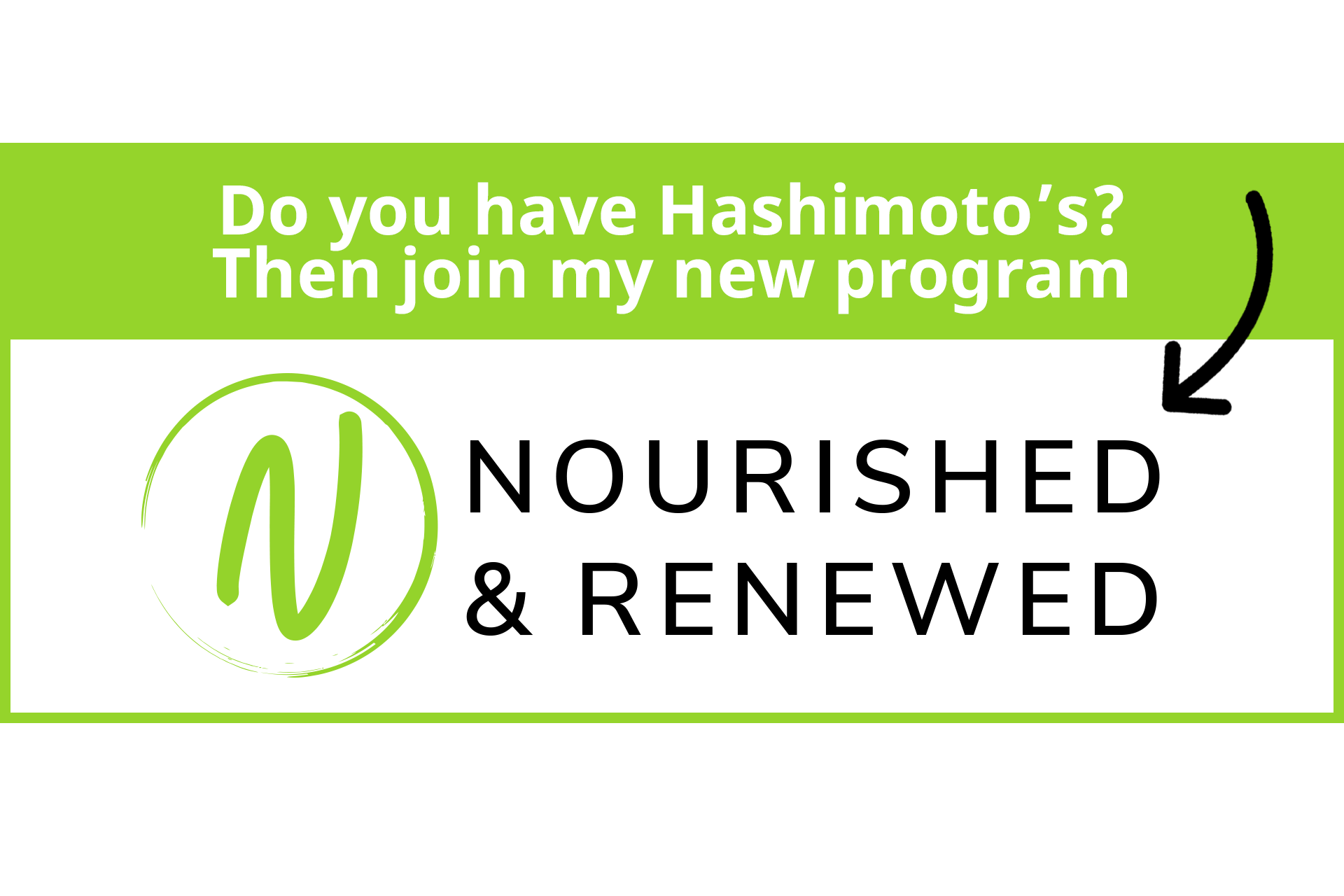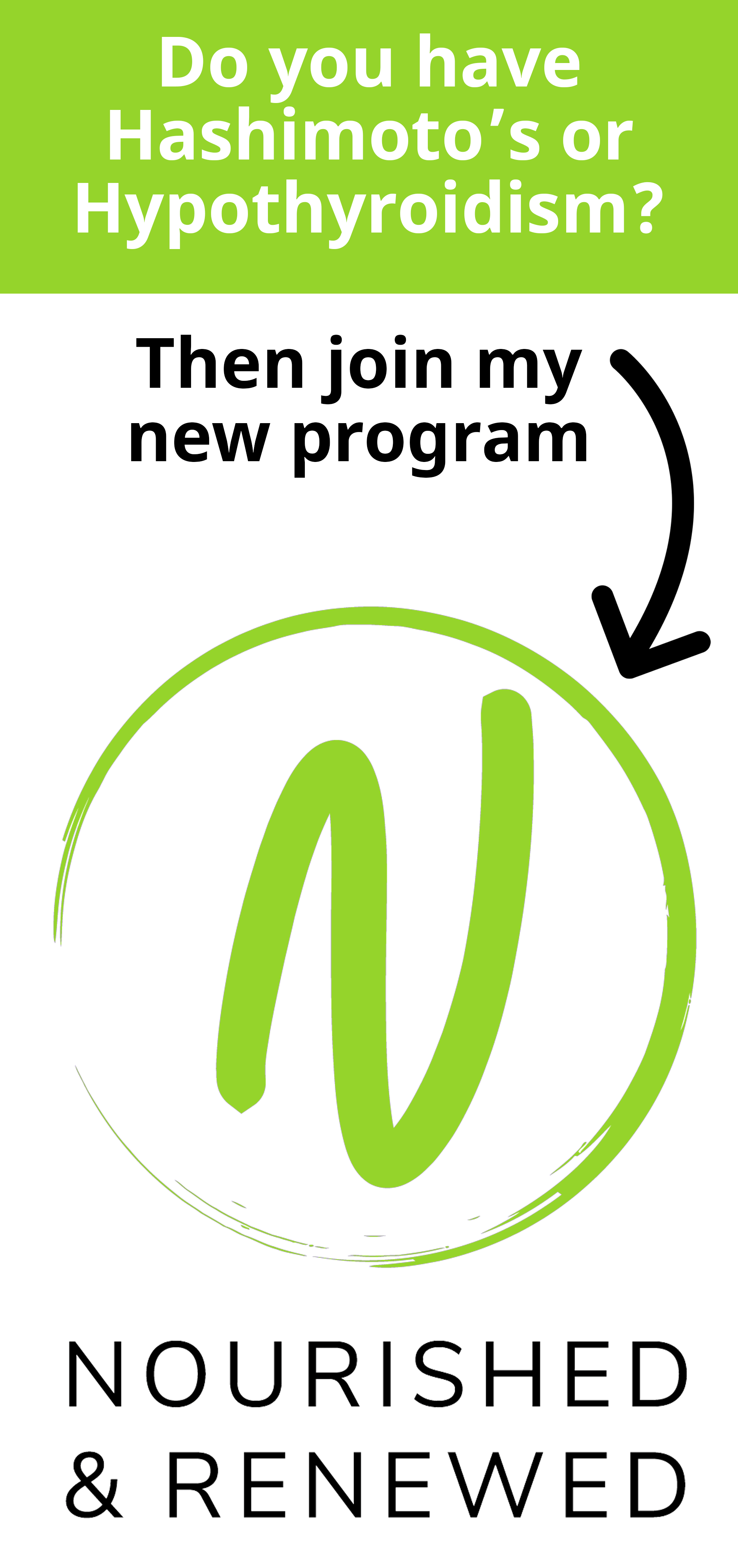Now that you are pregnant (and will soon have a growing family), you probably have some of the biggest nutrition questions of your life.
It was easy when it was just you and your partner to feed. Doing things "pretty good" was good enough. And, if you ate too many take-out meals or bags of chips too many days in a row, you likely did not worry too much.
Where can you find answers to the most commonly puzzling pregnancy questions?
Sure, anyone can surf the Web for info, or buy the latest pregnancy book on Amazon.
A doctor tells you one thing, a friend another, you read something in a parenting magazine, or you see supplements on the shelf at Costco.
We are literally bombarded with confusing information about how to manage our own health.
But what is really true about the best approaches for eating healthfully when you are pregnant?
Here's where I can help break down some commonly misconstrued information and help you to have the healthiest (and most sane!) pregnancy possible.
MYTH #1: You cannot have any deli meat while you are pregnant.
TRUTH: Listeriosis is a serious infection caused by the germ Listeria monocytogenes. People usually become ill with listeriosis after eating contaminated food.
The disease primarily affects pregnant women, newborns, older adults, and people with weakened immune systems. It’s rare for people in other groups to get sick with Listeria infection.
Listeriosis is usually a mild illness for pregnant women, but it causes severe disease in the fetus or newborn baby.
While some doctors and many popular pregnancy books suggest the advice to not eat any deli meat, my advice is instead - know where your meat comes from.
Did you buy the meat at your local grocery? Was it freshly sliced and packaged on the spot?
Is the meat organic, and no-nitrite/nitrate, minimally processed, few ingredients deli meat?
Did you put it in your fridge right when you got home and keep it tightly wrapped in it's original packaging?
Or better yet - transfer it to a glass container with a tight-fitting lid? Did you consume it within approximately 3-4 days?
Then you are probably fine to have some deli meat on occasion.
For some women, especially those with morning sickness or severe food aversions, sometimes an occasional home made deli sandwich does the trick for getting in calories and nutrients.
And especially protein, which can often be lacking in a pregnancy diet.
I do not suggest bellying up to a make-your-own sandwich bar at a company meeting in a hotel conference room with an unknown caterer where the meats (and cheeses and spreads) have been sitting out all day on a buffet table. (But, really, no one should eat that!)
Instead, in that situation, opt for ordering a made-fresh salad, or bring a brown bag complete with all the healthy, safe pregnancy foods you have from home.
MYTH #2: If you do not want to get fat, dietary fat should be avoided while you are pregnant.
TRUTH: Women need a certain amount of fat to become fertile and stay pregnant. First of all, fat is an essential nutrient. An “essential nutrient” is something necessary to life, and even the USDA admits that some amount of saturated fat is necessary to life.
Saturated fat helps to form cell membranes all over your body, it’s necessary for good immune function, it’s a basic building block for hormones, and it provides energy. Also, fat is really (like really, really) important for your baby.
In fact, some research suggests that women who eat certain types of "healthy fat" during pregnancy may reduce their risk of having a child with autism.
Wow, that is a great reason to have some avocado slices on your salad or tacos!
In one study, women who consumed high levels of linoleic acid a type of omega-6 fatty acid (which is found in nuts and seeds) were 34 percent less likely to give birth to a child with autism compared with women who consumed low levels of the nutrient.
In addition, women who consumed very low levels of omega-3 fatty acids (which are found in fish) were 53 percent more likely to have a child with autism compared with women who consumed only average amounts.
Fat sources in the diet should emphasize HEALTHY fats from QUALITY sources such as
- nuts and seeds
- avocados
- olives and olive oil
- fats from pasture-raised eggs
- organic or pasture-raised poultry
- grass fed beef or bison
- organic (preferably pasture-raised, raw, local) dairy products like cheese and yogurt
- cold-water fatty fish like cod, mackerel, salmon and halibut
MYTH #3: Morning sickness and digestive complaints in pregnancy are normal and cannot be avoided.
TRUTH: A healthy whole-food based diet can help to alleviate many digestive problems common in pregnancy. In fact, specific foods and herbs can address specific ailments.
Here are my favorite tips for boosting your digestion during pregnancy.
Heartburn
- Eat frequent small meals rather than 3 larger ones, and avoid drinking too much liquid with meals
- Eat slowly and chew thoroughly; remain upright after meals; don’t eat within 2-3 hours of bedtime
- Eliminate offending foods: hot or spicy foods, fried or greasy foods, fatty or salty meats, chocolate, coffee, carbonated drinks, citrus fruits
- Take chewable papaya tablets or digestive enzymes with meals
Morning Sickness & Nausea
- Include adequate protein at each meal & snack (lean meats, fish, legumes, nuts, seeds, quinoa, eggs, plain yogurt)
- Eat small meals & snacks often, even before you feel hungry
- Increase water intake to 10-12 glasses per day
- Take a vitamin B-6 supplement (25 mg 2-3 times daily)
- Take a combination of vitamins C (250 mg 2-3 times daily) & K2 (5 mg daily)
- Ginger (capsule or tea) is helpful in relieving nausea; other herbs that may help include dandelion, peppermint, and red raspberry leaf
- Worst case scenario: keep a salty nut-based cracker box (I like Simple Mills brand Sea Salt Almond Flour crackers) near your bed and eat 1 or 2 before rising
Bloating & Gas
- Eat 5-6 small meals throughout day, chewing thoroughly
- Avoid any refined or processed foods; try eliminating dairy, gluten or both
- Steam veggies rather than boiling or roasting to retain enzymes
- Chamomile tea or cinnamon tea can help relieve gas
- Walk or exercise for at least 30 minutes daily
Constipation
- Increase consumption of high-fiber foods, including fresh fruits & vegetables (especially raw leafy greens), legumes and whole grains
- Increase water intake greatly - remember, your blood volume increases in pregnancy, so your water needs increase as well. Try to consume a minimum of 1/2 your body weight in ounces of water per day
- Exercise each day for at least 30 minutes
- Sip ginger tea daily
- Taking a daily probiotic (acidophilus) will help ensure bowel regularity. It will also assist with proper assimilation of nutrients, which can support prevention of digestive issues
MYTH #4: When "eating for two" during pregnancy, it’s OK to eat whatever and however much you want.
TRUTH: The truth is that a pregnancy diet that consists of junk food will result in a less than healthy pregnancy. And, it may increase your risks for pre-term birth, low birth weight in baby, pre-eclampsia, gestational diabetes, and other more serious outcomes.
There is no amount of Twinkies, Cheetos or ice cream that makes this risk worth it.
Also, women who consume a junk food diet tend to gain more pregnancy weight, and have a harder time losing the weight when the time comes.
In pregnancy, caloric requirements only increase in small increments, trimester by trimester.
Typically, a healthy woman needs no additional calories for her pregnancy until around 12 weeks. And, then, it's safe to add just one solid, nutrient-dense snack per day.
But, instead of loading up on junky snacks, try to simply increase the nutritional value of all of your meals and snacks throughout the day.
For example, you can add
- avocados and olives to sandwiches and salads
- ground flaxseeds or hemp seeds to your morning cereal
- ground grass-fed beef or ground pasture-raised poultry to your pasta sauce, and so on.
Making a smoothie is one good way to add nutrient density instead of empty calories. You can load up a smoothie with some major superfoods, to boost calories, bump up nutrition, and bring on the healthy fats.
My favorite smoothie makes a great pregnancy snack.
Blend 1/4 avocado + 2 handfuls of raw leafy greens like baby spinach or kale + 1 cup unsweetened almond milk + 2 TBS shelled organic hemp seeds + 1 cup fresh or frozen organic fruit + ice to desired consistency and temperature.
Enjoy!
MYTH #5: A little bit of coffee won’t hurt my baby if I am pregnant, right?
TRUTH: The rate of risk is proportionate to the amount of caffeine: the more you consume, the greater the risk. We do know that caffeine crosses the placenta and reaches the baby. Also, it may even decrease blood flow to the baby, which can be harmful.
But, I get it.
Pregnancy can be tiring, and if you have a toddler or other children at home, its downright exhausting.
When I was pregnant with my second child, I thought I might never make it through the day without my one beloved cup of coffee!
So, I suggest sticking to just one cup of organic coffee per day. Swiss water process organic decaf coffee is even better. Green tea has a little bit of caffeine and loads of antioxidants - try that out once in a while.
If you just love the ritual of something hot in the morning, try some pregnancy-safe herbal teas like ginger, peppermint, cinnamon or a pregnancy herbal tea blend. (I like the pregnancy tea by Traditional Medicinals).
This is important too: have your coffee with a full-fat organic cream, coconut milk or even make it a bullet coffee (by blending with 1 TBS each of grass-fed butter and coconut oil) to help slow the release of caffeine to your system.
Fats added to coffee have a satiating effect so be sure you are also eating when having caffeine.
A healthy breakfast of two pasture-raised eggs, whole grain toast, avocado slices, and a bowl of fresh fruit WITH your one cup of organic coffee is the best bet.
MYTH #6: Organic foods are not necessarily more important during pregnancy.
TRUTH: Ok, yes, if you have a choice between eating a bag of chips and an apple (non-organic), eat the apple. Does that make sense?
Overall, what we know now (overwhelmingly through lots of research!) is that an organic food diet helps to reduce our unborn baby’s risk of exposures to persistent chemicals.
Also, it helps to promote health in both mother and child for the long run.
Organic foods are free of the troubling chemicals and pesticides that non-organic foods contain.
Since most of what you consume passes across the placenta to your unborn child, it's crucial to keep your consumption of these chemicals and pesticides to a minimum.
I suggest getting more familiar with all of the ins and outs around organic foods. This is because this topic is likely to remain important for you and your family throughout your children's lives.
My favorite resource for all things pertaining to food quality, environmental issues, organic standards and research supporting new subjects and information in this area is the Environmental Working Group.
MYTH #7: All prenatal vitamins are created equal.
TRUTH: Have you looked at your prenatal vitamin from the doctor or pharmacist? Is it neon pink or blue? What is listed in the ingredients? Where do those nutrients come from? Are they synthetic? And are they safe? Are they effective? Are they worth the money?
Most prenatals are really no different than most other cheap, synthetic vitamins - they just increase the folic acid and call it a day.
I really will write a whole blog post on this one topic some day, but for now, here is what you need to know.
Whole-food prenatal vitamins are available and are so much better for you and your baby.
Whole-food supplements utilize sources found in nature, rather than synthesized compounds.
The advantage, whether as a part of pregnancy nutrition or not, is that they are more easily absorbed and utilized by the human body.
The best places to find vital nutrients for pregnancy is in foods such as fresh fruits and vegetables.
But it can be difficult to get enough of these foods in our day-to-day regimens.
Whole-food vitamins are extracted from fruits and vegetables. Because the body recognizes these compounds—as opposed to synthetic or isolated vitamins—it knows how to put them to use.
In the case of vitamins that have been isolated from their whole food sources or even created in the lab, as much as 90% of them pass directly through our bodies with no actual benefit.
Side note: nurses in hospitals often refer to most one-a-day multivitamins as "bedpan bullets" - think about that for a second.
A pregnancy nutrition plan usually includes a need for extra whole food vitamins.
Taking whole food vitamins helps ensure that the nutrients are actually being absorbed and used for the health of both the baby and the mother.
I have my favorite brands, so just ask me next time you are in and we will go over what is the best fit for you.
Basic Tips for Choosing a Good Pre-Natal Vitamin
- Keep as close as possible to its natural form – a whole-food supplement.
- It contains a minimum of 800 mcg folate necessary for fetal brain development
- The utmost care has been taken in all phases of its production, from growing its ingredients, to manufacturing, testing for potency and quality control.
- It works! (You will be able to tell the difference!)
MYTH #8: Mercury is a real concern and there is no safe fish to consume during pregnancy.
TRUTH: This is true that mercury is a real concern. Mercury is a metal and can be toxic to both mom and baby. And, your body easily absorbs mercury from fish, and mercury crosses the placenta.
Many studies have shown that exposure even to low doses of mercury during pregnancy can impair a baby's growing brain and nervous system.
According to the Environmental Protection Agency (EPA), cognitive skills (like memory and attention), language, motor skills, and vision may be affected.
The problem is that fish is too good a nutritional choice to avoid it completely – especially during pregnancy.
In fact, in one Danish study, babies whose mothers ate an average of 14 ounces of low-mercury fish per week during pregnancy had better motor and cognitive skills at 6 months and at 18 months than those whose mothers ate less fish during pregnancy.
And those whose mothers ate the least fish in pregnancy had the lowest developmental scores. Some studies also show that eating fish during pregnancy may help prevent preterm birth and low birth weight.
And, the good news is - there are some healthy, low mercury fish you can safely eat while pregnant. Good choices include salmon, trout, anchovies, herring, and sardines.
The Natural Resources Defense Council publishes a handy wallet card (PDF) on their website. It tells you where most commercial fish falls on the mercury contamination scale and how much of each it's okay to eat.
The U.S. Food and Drug Administration (FDA) and the EPA advise women of childbearing age and young children not to eat these top four high-mercury species: swordfish, shark, king mackerel, and tilefish from the Gulf of Mexico.
MYTH #9: You should be worried if your doctor has told you that you are gaining too much weight during pregnancy.
TRUTH: You should not be concerned if your weight gain is not on the "scale" for "normal" weight gain in pregnancy. In reality, every woman gains weight differently in pregnancy.
The old rule of gaining approximately 25 pounds over 40 weeks of pregnancy is not very realistic.
Some women gain weight in "fits and spurts" meaning they may go for weeks without gaining, then suddenly put on five pounds.
Women who experience morning sickness may lose a little weight in the first trimester.
As long as you are staying hydrated, getting plenty of rest and taking a high quality prenatal multi-vitamin, you are not at risk for any serious complications with weight loss.
Keep in mind that when you gain weight eating nutrient-dense, whole foods, mostly plant based, with lots of high quality proteins and healthy fats.
You will gain only exactly what your body and your baby need for a healthy pregnancy.
If you have gained more weight than you planned or your doctor has advised you to reconsider your nutrition, it is never a good idea to begin restricting calories.
Instead, you will want to continue to consume healthy meals and participate in regular physical activity.
Be sure not to have too many high calorie snacks in between meals so you are not filling up on “empty” calories.
MYTH #10: Once baby arrives, I am going to lose weight. Let the dieting begin!
TRUTH: True, true, true, I hear you...oh, to have your body back! I gained fifty (yes, 50!) pounds with both of my babies. And, I was ready to not feel like a giant balloon any more once my sweeties arrived.
Many women are anxious to return to their pre-pregnancy shape and weight after childbirth. But, your pregnancy weight wasn't gained overnight so it won't disappear that quickly, either.
As a matter of fact, right now you are gaining that weight so that you will have plenty of reserves for feeding your baby.
Not every woman leaves the hospital or birth center in her high school jeans and producing breast milk like a factory. In fact, the hormonal process is all so much more delicate.
Body fat is needed for making breast milk. Hormones are going to stick around long enough to keep you off that crazy rollercoaster of emotions (waning estrogen = waxing moodiness and irritability).
Your body's reserves are protecting both you and baby for survival (Oh, that sneaky Mother Nature, she knows!) The body transitions in DUE TIME.
Wait for at least 2 months after birth to lose weight
It is safer for you to wait at least two months postpartum to purposely lose weight.
This is because your body needs this time to recover from childbirth, rebalance your metabolism and hormones, and most importantly, establish a good milk supply.
And, hey, you are about to be a mom!
So the parenting stuff starts like right away. And, like it or not, we start thinking about how our lives entangle with that of our offspring, in more ways than one.
Like teaching about how to love our bodies. Yep.
Your baby will have the most perfect, beautiful, healthy body. Right down to his darling pink toes.
You know you want baby to grow in to a beautiful, healthy child that has a healthy body image and a healthy relationship with food.
The best way to encourage healthy eating for your little ones, is to eat well yourself with a diet rich in fresh fruits and vegetables, and other nutritious foods. This sets a good example for your child to follow.
By letting go of a "diet mentality" you do yourself and your children a huge favor in setting nutrition and health a part from weight and appearances.
Their little eyes are watching us from the get-go. And, they look to us for advice on how to care for these bodies (that came with no instruction manual!).
Looking for pregnancy nutrition guidance?
Drop me an email if you want to work with me to make sure you are getting the right foods & supplements best for you during each stage of pregnancy and ensure that both mom and baby stay in optimal health.






